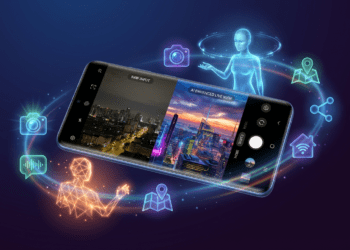The browser wars just got a lot more interesting. On July 9, 2025, Perplexity AI launched Comet, an AI-powered web browser that promises to transform how we interact with the internet. This isn’t just another browser with AI features bolted on—it’s a complete reimagining of web browsing for the AI age.
The Dawn of AI-First Browsing

Comet represents Perplexity’s boldest move yet in its ongoing battle against Google’s search dominance. Unlike traditional browsers that treat AI as an add-on, Comet integrates artificial intelligence at its core, creating what CEO Aravind Srinivas calls “single, seamless interactions” that replace complex browsing workflows.
The browser launches with Perplexity’s AI search engine as the default. Instead of showing you a list of links, it delivers AI-generated summaries with citations. This approach directly challenges Google’s traditional search model by providing answers rather than just pathways to answers.
What Makes Comet Different
Built on the Chromium framework, Comet supports existing Chrome extensions and allows users to import their bookmarks and settings with one click. But that’s where the similarities end. The browser features agentic automation capabilities that can autonomously execute complex tasks that would normally require 15+ manual steps.
Want to renew your driver’s license? Tell Comet your goal, and it will browse, extract, and synthesize content to complete the process. Need to book a hotel or buy a product? The AI assistant can handle these tasks while you focus on other work.
The standout feature is Comet Assistant, which lives in a sidebar and can see everything on your screen. This AI agent can answer questions about web pages, summarize content, and automate routine tasks like managing emails, scheduling meetings, or organizing tabs.
Privacy in the AI Age
One of Comet’s most compelling features is its approach to privacy. The browser offers three distinct modes: no memory with no ads, memory without ads, or memory with ads. Data is stored locally by default, and the company promises not to use browsing data for AI training.
This privacy-first approach addresses growing concerns about data collection in AI-powered tools. Users maintain control over what information the assistant can access, requiring explicit permission before granting access to sensitive data like calendars or email accounts.
Real-World Performance and Limitations
Early testing reveals both promise and challenges. TechCrunch’s hands-on review found Comet Assistant surprisingly effective for simple tasks like answering questions about web content or summarizing emails from important contacts.
However, the AI struggles with complex tasks. In one test, the assistant attempted to book airport parking but hallucinated incorrect dates and still tried to complete the checkout process. These limitations highlight ongoing challenges with AI hallucinations that prevent agents from becoming truly reliable tools for complex workflows.
The browser also requires extensive permissions to function fully. Users must grant access to view screens, send emails, access contacts, and modify calendar events—a level of access that may make privacy-conscious users uncomfortable.
The Competitive Landscape

Comet enters a crowded field of AI-enhanced browsers. Google has been integrating AI features into Chrome, Microsoft calls Edge “the AI browser,” and The Browser Company launched its own AI-powered browser, Dia, in June 2025.
OpenAI is also reportedly developing its own browser and has hired key members from the original Google Chrome team. This suggests the tech industry believes AI-first browsing represents the future of web interaction.
Availability and Pricing Strategy
Currently, Comet is available only to subscribers of Perplexity’s$200-per-month Max plan and a small group of waitlist invitees. The browser supports Windows and Mac, with mobile versions planned for the future.
This premium pricing strategy reflects Perplexity’s focus on power users and professionals who can justify the cost through productivity gains. The company plans to expand access more broadly on an invite-only basis, though no timeline has been announced for a free version.
Technical Innovation and User Experience
Comet introduces several innovative features that distinguish it from traditional browsers. The address bar doubles as a command line for natural language queries. Users can ask questions like “Find that article about sea otters from last Tuesday,” and Comet retrieves it using browsing history.
The browser supports multimodal inputs, accepting text, voice, and image queries. Users can upload screenshots or documents for instant analysis, making research workflows more efficient. Real-time visual indicators show when the AI is interacting with web pages, providing transparency in automated tasks.
### Market Impact and Strategic Implications
Perplexity’s browser launch represents more than just another product release. The company recently raised funding at a$14 billion valuation, with backing from Nvidia, Accel, and SoftBank Vision Fund 2. This capital will support Comet’s development and help scale beyond Perplexity’s current 30 million monthly users.
The strategic importance of browsers in the AI era cannot be overstated. As Srinivas noted, becoming the default browser for users could translate to “infinite retention” and dramatically increase query volume for Perplexity’s core search business.
Challenges and Future Outlook
Despite its innovative features, Comet faces significant challenges. Chrome’s 63.55% market share and Safari’s 21.81% dominance create high switching costs for users. Browser preferences tend to be sticky, and convincing users to abandon familiar tools requires compelling value propositions.
The AI hallucination problem also remains unsolved. Until AI agents can reliably execute complex tasks without errors, they’ll remain useful primarily for simple automation and information retrieval rather than mission-critical workflows.
The Broader AI Browser Revolution
Comet’s launch signals a fundamental shift in how we think about web browsers. Rather than passive tools for accessing information, browsers are becoming active partners that understand context, automate tasks, and provide intelligent assistance.
This evolution reflects broader trends in AI development, where the focus has shifted from standalone applications to integrated experiences that enhance existing workflows. The success of AI-powered browsers could accelerate this integration across other software categories.
What This Means for Users
For professionals and researchers, Comet offers compelling productivity benefits. The ability to summarize content across multiple tabs, automate routine tasks, and get instant answers without leaving the browser could significantly streamline workflows.
However, users must weigh these benefits against privacy concerns and the current limitations of AI agents. The$200 monthly cost also limits adoption to users who can demonstrate clear ROI from the productivity gains.
Looking Ahead

Perplexity plans to continue developing new features for Comet, including enhanced memory capabilities and scheduled task automation. These additions could address current limitations and make the browser more compelling for a broader audience.
The success of Comet will likely influence how other tech giants approach browser development. If Perplexity can demonstrate significant user adoption and engagement, expect accelerated AI integration across all major browsers.
The launch of Comet marks a pivotal moment in the evolution of web browsing. While challenges remain, the browser represents a bold vision for how AI can transform our daily interactions with the internet. Whether it succeeds in challenging Google’s dominance remains to be seen, but it’s already changing the conversation about what browsers can and should do in the AI age.
Sources
- The Verge – Perplexity just launched an AI web browser
- Next Big Future – Perplexity Comet – AI Powered Browser
- TechCrunch – Perplexity launches Comet, an AI-powered web browser
- Windows Central – Perplexity launches “Comet” AI web browser
- Toolkitly – Perplexity Comet: The Complete Guide
- The Tech Basic – Perplexity Debuts Comet Browser









Comments 2